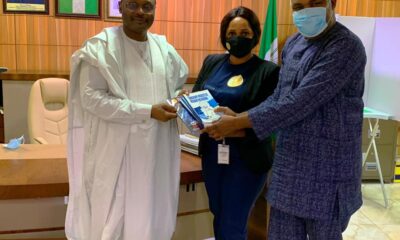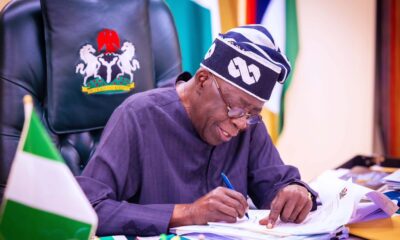News
Osita Izunaso at Mid-Tenure By Emmanuel Nnadozie Onwubiko
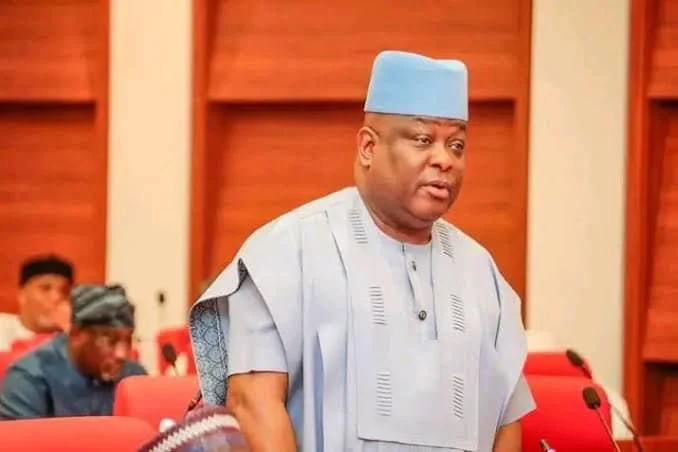
Amongst the earliest philosophers, Socrates holds a very distinctive position for all epochs. Socrates addressed the functionality of the legislative house in nations of the World, even though he dwelt on his city state but his works have universal and obviously eternal applicability.
This founding father of Philosophy, according to an entry in the Encyclopedia Britannica, Socrates (born c. 470 BCE, Athens [Greece]—died 399 BCE, Athens) was an ancient Greek philosopher whose way of life, character, and thought exerted a profound influence on Classical antiquity and Western philosophy.
Socrates was a widely recognized and controversial figure in his native Athens, so much so that he was frequently mocked in the plays of comic dramatists. (The Clouds of Aristophanes, produced in 423, is the best-known example.) Although Socrates himself wrote nothing, he is depicted in conversation in compositions by a small circle of his admirers—Plato and Xenophon first among them. He is portrayed in these works as a man of great insight, integrity, self-mastery, and argumentative skill. The impact of his life was all the greater because of the way in which it ended: at age 70, he was brought to trial on a charge of impiety and sentenced to death by poisoning (the poison probably being hemlock) by a jury of his fellow citizens. Plato’s Apology of Socrates purports to be the speech Socrates gave at his trial in response to the accusations made against him (Greek apologia means “defense”). Its powerful advocacy of the examined life and its condemnation of Athenian democracy have made it one of the central documents of Western thought and culture.
Turning now to content, in the Republic, Socrates develops an ideal city, referred to as the Callipolis (literally, the beautiful or noble city). The Callipolis consists of three classes: a large working class of farmers and craftspeople, an educated military class, and a small number of elite philosophers who will rule the city. The military and ruler classes are called “guardians,” and they will not have any private property. Indeed, they will hold everything in common including women, men, and children. Unlike in the Callipolis, private property is allowed throughout Magnesia and political power spreads throughout the city. Another notable difference is that only philosophers possess fully-developed virtue in the Republic (and in the Phaedo) while in the Laws the Athenian says that correct legislation aims at developing virtue in the entire citizen body (1.630d-631d, 4.705d-706a, 4.407d, 6.770c, 12.962b-963a).
To be sure, the political structure of the Callipolis secures the correct behavior of all citizens. However, because complete virtue involves knowledge, which only philosophers have, non-philosophers can only approximate virtue. In other words, the Laws seems to express more optimism than the Republic with respect to the average citizen’s ability to be virtuous. Philosophically, the legislature is key to good governance. This is why in this piece, we are examining the halfway performance of one of Nigeria’s most high-ranking Senators in the person of Senator Osita Izunaso of Imo West Senatorial District in the National Assembly of Nigeria.
At the midway point of his current tenure in the Senate of the Federal Republic of Nigeria, Senator Osita Bonaventure Izunaso stands as one of the most visible and highly regarded political figures from Imo State. Representing the Imo West Senatorial District and serving as the highest-ranking senator from the state, Izunaso’s contributions over the past two years have placed him at the forefront of national politics and local development.
A founding member of the All Progressives Congress (APC), he entered the Senate with both experience and expectations, and at this juncture, it is proper to render a sober yet appreciative assessment of his stewardship. The record shows significant achievement, consistent representation, and a passion for development, but also reveals areas where his legacy could be made even more impactful if he directs greater attention—particularly to the urgent matter of youth empowerment.
Izunaso’s legislative record in these two years demonstrates both substance and vision. He chairs the Senate Committee on Capital Market and Institutions, a critical committee that has a direct bearing on Nigeria’s economic growth and financial stability. Under his watch, the Investment and Securities Bill was introduced and advanced, opening up Nigeria’s capital market to broader participation, including the regulation of emerging asset classes such as cryptocurrency. This has not only strengthened investor confidence but has also ensured that young Nigerians, who are among the most active participants in digital financial assets, can operate in a more regulated and secure environment.
For a nation struggling with financial illiteracy and lack of inclusion, this intervention is far-reaching. In addition, Izunaso has been vocal in promoting fairness in Nigeria’s federal structure. His bill seeking the creation of a new state in the Southeast—Anim State—demonstrates his recognition of long-standing inequities in representation. The Southeast has remained disadvantaged in terms of the number of states compared to other regions, and his advocacy on this matter is evidence of his commitment to justice and balance. By giving voice to this agitation in the Senate, Izunaso has shown that he is not only responsive to the needs of his constituents but also attuned to broader national debates.
Beyond the walls of the Senate, Izunaso’s footprint is evident in his constituency. He has delivered tangible projects that address both immediate needs and long-term development. In communities such as Akokwa and Urualla, he has championed the establishment of skills acquisition centres complete with modern facilities and boreholes. These centres symbolize his recognition that technical skills and vocational training can provide youths with employable skills to navigate Nigeria’s tough economy.
He also launched an ambitious agricultural empowerment program worth two billion naira in Orlu Zone in collaboration with an international partner, Agri Crowdy. This initiative targeted 1,200 beneficiaries across the twelve local government areas in his senatorial zone and introduced innovative agricultural practices ranging from seed farming to fish breeding. More recently, he organized a three-day training for youths and women in New Owerri, which provided participants with seedlings, cash support, and guidance on how to form cooperatives to access markets and credit.
Infrastructure development has also featured prominently in his mid-term record. The road project he flagged off in Isiekenesi, Ideato South, was a longstanding demand of the community, and the commencement of that project has been widely praised for its potential to unlock economic opportunities and facilitate trade. Izunaso’s interventions have also included the construction of conference halls in local governments, the rehabilitation of hospitals and schools, electrification projects, and the installation of streetlights under the “Light Up Orlu” initiative. These projects, spread across the district, testify to a senator who understands that development must be holistic and multifaceted.
His empowerment strategy has extended beyond agriculture. He has distributed sewing machines, grinding machines, motorcycles, barbing kits, welding tools, and vehicles to constituents, with special attention to persons with disabilities. In doing so, Izunaso has demonstrated an inclusive approach that seeks to lift diverse groups out of poverty. He has also paid attention to education, awarding scholarships to more than 200 university students, sponsoring candidates for UTME and WASSCE, and rewarding high-performing students with additional scholarships. Plans for a technology innovation centre in partnership with Michigan State University are already underway, offering hope that the youths of Imo West will gain access to 21st-century skills and digital literacy.
In healthcare, his efforts through the Kpakpando Foundation have provided medical outreach services, rehabilitated health facilities, and distributed relief materials, especially during festive seasons. Food distribution, support for widows, and assistance for the elderly are regular features of his outreach, reflecting a senator who recognizes the importance of caring for the vulnerable. Importantly, Izunaso has maintained a culture of accountability, presenting annual scorecards to his constituents and pledging to hold regular interactive sessions. Such openness is rare in Nigerian politics and strengthens trust between him and his people.
Yet, despite these achievements, one must speak frankly about an area that still demands greater attention. That area is youth empowerment. The truth is that while Izunaso has made commendable interventions through agricultural training and vocational support, the scale of the crisis in Imo State demands far more ambitious action. The insecurity in the state, which has led to countless deaths, destruction, and fear, is fueled by youths who, lacking economic opportunities, are deceived into joining armed groups, cult organizations, and gangs masquerading as freedom fighters. These are not young men and women driven purely by ideology; rather, they are children of desperation, people who cannot see any path to survival outside crime. It is here that Izunaso’s next two years must focus with laser precision.
As the highest-ranking senator from Imo State, Izunaso commands significant influence in the National Assembly. His standing as a founding member of the APC also gives him access to the highest levels of decision-making in government. These two advantages place him in a unique position to attract resources, programs, and partnerships that could scale youth empowerment beyond hundreds to thousands.
While it is not the constitutional duty of a senator to eradicate poverty or to create jobs directly, the reality of Nigerian politics is that senators who leverage their stature and networks can pull in federal interventions, donor funds, and private sector partnerships that transform their zones. In this respect, Izunaso can and should do more. By championing large-scale youth empowerment programs—whether through entrepreneurship funds, skills hubs, digital training centres, or agribusiness cooperatives—he would not only reduce restiveness but also solidify peace and stability in his constituency. Even if only half of the youths in Imo West were meaningfully engaged in productive ventures, the crisis of insecurity in the state would reduce dramatically.
There is also a political dimension. Many are already projecting Izunaso for higher office beyond the Senate. Expectations, therefore, are rising. With higher visibility comes higher scrutiny. He cannot afford to be remembered merely as the senator who did well with roads, scholarships, and healthcare. He must be remembered as the senator who tackled the root cause of insecurity in Imo State by championing youth empowerment. If he succeeds in that regard, he would not only secure his legacy but also demonstrate that politics can be about changing lives in sustainable ways. He has already laid the foundation; the task now is to scale and deepen those interventions.
Of course, this is not to suggest that the responsibility lies with him alone. The state government has an even greater role to play, and the federal government must provide a conducive environment for investment and job creation. But Izunaso’s position, alongside the fact that the governor of Imo State hails from the same senatorial zone, means that the two leaders can synergize more closely to deliver on this critical priority. It would be an historic failure if their combined political influence did not result in a significant transformation of youth fortunes in Orlu and its environs.
In fairness, Izunaso has shown that he understands the importance of empowerment, as evidenced by his interventions in agriculture and vocational skills. What is required now is scale, strategy, and sustainability. Instead of occasional distributions of equipment, programs must be structured, monitored, and expanded in ways that transform communities. Youths need not only tools but also access to credit, mentorship, and markets. They need support to start and sustain businesses, to learn digital skills that open global opportunities, and to participate in industries beyond subsistence. Izunaso’s contacts at home and abroad, his experience in governance, and his political stature all position him to make this happen.
Two years into his tenure, it is undeniable that Senator Osita Izunaso has provided effective, responsive, and inclusive representation. His legislative achievements are significant, his constituency projects are visible, and his social interventions are commendable. He has balanced the responsibilities of a lawmaker with those of a community leader, and he has done so with humility and accountability. But in the same breath, it must be said that he cannot afford to rest on these laurels. The remaining two years of his tenure must be dedicated to tackling the scourge of youth unemployment and disempowerment that feeds insecurity in Imo State. Doing so would not only reduce crime but also unleash the creative energies of thousands of young men and women whose talents are currently wasting.
If Senator Izunaso rises to this challenge, he would leave behind a legacy far greater than roads, scholarships, and health outreaches. He would be remembered as the leader who helped rescue a generation from the grip of hopelessness and violence. At this halfway point, his report card is strong, with a record of commendable achievements that deserve praise. But as he prepares for the second half of his term, he must know that the true measure of his leadership will not be in what has been done already, but in what more can still be done.
EMMANUEL NNADOZIE ONWUBIKO IS the founder of the HUMAN RIGHTS WRITERS ASSOCIATION OF NIGERIA (HURIWA) and was NATIONAL COMMISSIONER OF THE NATIONAL HUMAN RIGHTS COMMISSION OF NIGERIA.
News
ARISE News Anchor Somtochukwu Maduagwu Found Dead Following Abuja Robbery, Reports FCTA

The Federal Capital Territory Administration (FCTA) has confirmed that Somtochukwu Maduagwu was brought to Maitama Hospital without vital signs after a robbery incident at her home in Abuja.
Dr. Dolapo Fasawe, the Mandate Secretary on Health for the FCTA, stated that ARISE News anchor Somtochukwu Maduagwu was pronounced dead upon arrival at Maitama General Hospital at approximately 4:30 am on Monday. This clarification was issued via a statement from the FCTA, aimed at addressing earlier claims that medical negligence contributed to her demise following the robbery.
Somtochukwu Christelle Maduagwu, affectionately known as Sommie, was a 29-year-old journalist tragically killed during an armed robbery at her Katampe residence in Abuja in the early hours of Monday, September 29, 2025.
Residents of the apartment complex reported that the attack transpired around 3 a.m. when over 15 armed robbers invaded the 16-apartment building. Witnesses indicated that security personnel sounded the alarm and tried to reach the police, but there was no immediate response. Sommie and a security guard, who also sustained injuries during the incident, were promptly taken to Maitama District Hospital. However, family members claimed they were denied urgent treatment due to not having identification documents readily available. Both victims later succumbed to their injuries.
In the meantime, FCT Minister Nyesom Wike expressed his condolences to the management and staff of ARISE News Channel regarding the unfortunate demise of Somtochukwu Maduagwu. He described her death as both tragic and painful, and he prayed for God’s continued support for the staff of ARISE News, particularly for the Chairman, Prince Nduka Obaigbena, and for the family and friends of the late journalist. The minister noted that a preliminary medical report would be provided to the police to assist in their investigation, emphasizing that all necessary steps would be taken to uncover the details surrounding her death. He reassured the family, friends, and colleagues of Somtochukwu Maduagwu that the police are committed to discovering the circumstances of her passing and ensuring that those responsible face justice.
Source: ARISE TV
News
Negotiations With Terrorists Undermine Elements Of Nigeria’s Statehood: HURIWA says

Pro-democracy and civil rights advocacy group HUMAN RIGHTS WRITERS ASSOCIATION OF NIGERIA (HURIWA) has condemned the Federal government for permitting some states in the North-west to negotiate the so-called peace agreement with terrorists, criminal gangs and armed kidnappers, just as the Rights group said the negotiations have undermined and eroded the key elements of Nigeria’s statehood.
HURIWA blames the ambiguities of the Federal government on how to deal decisively with armed brutes killing thousands of Nigerians for the expanding frontiers of terrorist attacks and the unprecedented insecurity in many parts of Nigeria. “Since the Federal Government is creating the impression that it is open to dialogue with terrorists, then more and more desperate criminals would escalate their criminal activities, hoping that they too would merit an invitation for dialogue by the current administration that is already discussing with terrorists in the North West for the so-called peace.
Criminal gang members who are watching the dialogue sessions with terrorists in the North West will automatically become daring and bloody so as to gain attention of the government that is too weak to militarily defeat terrorists and very willing to enter into negotiations for the so-called truce.”
HURIWA which expressed the position that any public office holder or private individual who negotiates with terrorists is also a terrorist, has therefore called on President Bola Ahmed Tinubu to stop the disgraceful surrendering of the Nigerian state to the whims and caprices of a motley crowd of armed bandits, bloodstained terrorists, armed kidnappers and criminal gangs in Katsina and some other states in the Northern States of Nigeria.
HURIWA said there is no doubt that what have played out in the last couple of weeks in Katsina, Zamfara and other places in the North West of Nigeria in the guise of local and state governments negotiating with terrorists for the so-called truce, amounted to the demolition of the four fundamental elements that qualifies Nigeria as a Sovereignty even as HURIWA postulated that the state as a person of international law should possess the following qualifications: (a) a permanent population (people); (b) a defined territory; (c) government (political authority); and (d) capacity to enter into relations with the other states (diplomat recognition or sovereignty).
HURIWA which condemned the negotiations with terrorists, said the impression being created globally with these charades going on in Katsina by way of negotiations for peace with terrorists responsible for killings of dozens of citizens is that Nigeria has gradually lost those key elements of statehood. HURIWA also stated that the negotiations have completely rubbished the determination of the families of victims of terrorism from achieving any sort of closure and justice for the terminations of the lives of their loved ones and the losses of livelihoods they suffered as a result of terrorist attacks.
HURIWA asked rhetorically thus: “Is it not preposterous that whilst the president Tinubu’s government has sanctioned negotiations with terrorists that are wanted by advanced and sophisticated nations such as the United States, the same administration sent out the Vice President Kashim Shettima to the United Nations General Assembly in New York to canvass that Nigeria be made a permanent member of the security council of the United Nations?
“Is this not a pathetic irony to openly demonstrate to the World that Nigeria’s statehood is eroding fast, as demonstrated by the show of shame called peaceful negotiations with terrorists who attended the so-called truce meetings in Katsina state, wielding some of the most sophisticated weapons of mass destruction and other combat weapons of military grades?
Has this government in Nigeria no shame and has the government no respect for the constitution of the Federal Republic of Nigeria? We insist that terrorists must be made to face the full wrath of justice, just as we believe that government is obliged to take justice to terrorists or bring terrorists to justice for their crimes of bloodshed and destruction of livelihoods of Nigerians.
HURIWA recalled that authorities in Nigeria’s northwestern Katsina state reportedly struck a so-called peace deal with criminal gangs in what it says is an effort to end years of violence, a government official confirmed to the media.
HURIWA recalled that Katsina is one of several states in northwestern and central Nigeria terrorized by criminal gangs that the locals refer to as bandits. The federal government, through the Defence Headquarters, had previously declared the leaders of the terrorists groups now negotiating with government as terrorists, even as huge amounts of money was promised as rewards for information leading to their arrests.
HURIWA wondered the logic in negotiating with criminal gangs that continuously raid villages, rape girls and children, kill and abduct residents, as well as torch homes after looting them.
HURIWA recalled that the terrorists and criminal gangs maintain camps in a huge forest straddling Zamfara, Katsina, Kaduna states in the northwest region and Niger state in the country’s central zone and have carried out mass kidnappings of students from schools in recent years.
HURIWA recalled that the Katsina State Government confirmed that a dozen bandit kingpins met with local officials and community leaders in the town of Danmusa, where they renounced violence and pledged to turn a new leaf, Nasiru Mu’azu, Katsina state internal commissioner said.
“There was a peace meeting between 12 bandit leaders and the local community leaders in Danmusa, where the bandits renounced their criminal activities and committed to peace,” Mu’azu said.
The bandits initiated the meeting, he said. “The community welcomed the overtures and agreed to a peace deal as long as the bandits are genuinely interested in peace,” he said.
Katsina state government stated that as a mark of goodwill, the bandits surrendered weapons and released 17 hostages, with the promise to free more people they were holding.
HURIWA said security experts have cautioned against any sort of appeasement of terrorists because, as criminals with zero ideological leaning, the bandits are motivated by financial gains, but their increasing business and operational alliance with jihadists from the northeast has been raising concern among government officials, which is the reason for the illegal negotiations with terrorists.
HURIWA pointed out that in 2023, Katsina state governor Dikko Umar Radda established Katsina Community Watch Corps, comprising around 2,000 vigilantes to assist the military and police in fighting the bandits.
“We have been fighting the bandits for the past two years, and the state governor has reiterated he will not negotiate from a position of weakness,” Mu’azu, the Katsina state official said.
In the media statement by the National Coordinator, Comrade Emmanuel Nnadozie Onwubiko, HURIWA reiterated its position of zero tolerance for any sort of negotiations with terrorists because that would amount to state surrender.
“We are asking President Tinubu to stop these acts of treason in the name of negotiations with terrorists. We believe that no matter the quantum of cash paid out to these terrorists now dialoguing with Katsina and other Northern governments, the moment the blood money finishes, these terrorists who are already used to making hundreds of millions of blood money will simply return to their familiar terrains of terrorism and when they do return, they would be even more vicious than they are now.”
COMRADE EMMANUEL NNADOZIE ONWUBIKO,
NATIONAL COORDINATOR,
HUMAN RIGHTS WRITERS ASSOCIATION OF NIGERIA (HURIWA).
MONDAY SEPTEMBER 29TH 2025.
News
Corruption Becoming Endemic Now: HURIWA Says
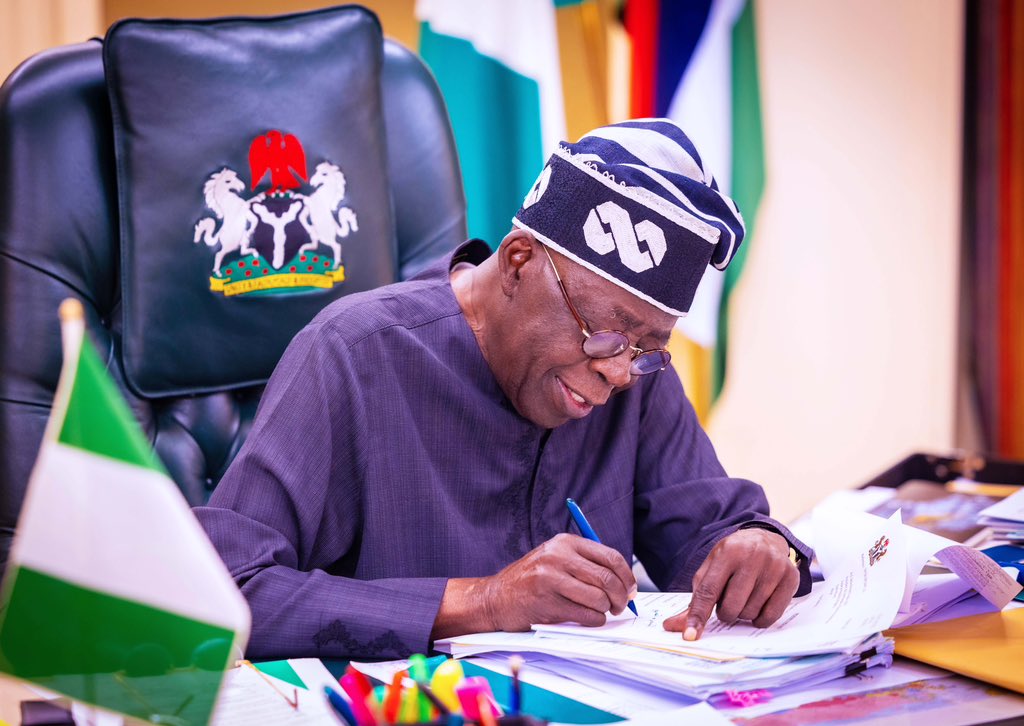
TASKS government on transparency in conditional cash transfer
Civil Rights advocacy Group HUMAN RIGHTS WRITERS ASSOCIATION OF NIGERIA (HURIWA) has expressed worry about the apparent inability of the Federal government to come clean on how N330 billion was disbursed to 8.1 million households without any compliance with the principles of transparency and accountability. “Most Nigerians are wondering whether this huge sum of public funds were shared to ghosts or to real citizens since these households are not known by millions of Nigerians.”
Besides, HURIWA has raised alarm that corruption is perceived to be so high within the government circles even as the Rights group said it was wrong for President Tinubu to keep silent in the face of mounting accusations of corruption affecting some of his appointees including the allegations of acquisitions of exotic housing assets by the Minister of the Federal capital territory Mr. Nyesom Wike with allegedly looted public funds.
HURIWA recalled that the federal Government had few days ago, announced that it has disbursed a total of N330bn to 8.1 million households across the country under the National Social Safety Net Programme, aimed at cushioning the harsh effects of economic reforms on Nigeria’s poorest and most vulnerable citizens.
The disclosure was made in Abuja by the Minister of Finance and Coordinating Minister of the Economy, Wale Edun, after a review meeting of the Special Presidential Panel on Social Investment, inaugurated by President Bola Tinubu in February.
Edun explained that the programme, which experienced delays earlier in the year, was now firmly back on track following the successful integration of biometric data through the National Identification Number. This integration, he said, was crucial to ensuring transparency, curbing leakages, and eliminating political interference.
According to the minister, out of the 19.7 million households captured in the National Social Register—representing about 70 million Nigerians—8.1 million households have already received at least one tranche of the N25,000 stipend. Some beneficiaries have received two or three payments depending on verification outcomes.
Reacting to the widespread failure of the Federal Government to evidently show believable proof of how this humongous cash were disbursed and to clearly publicise the identities of these beneficiaries, HURIWA said it is shocking that a democratically elected government put in place by the people, could come up with such seemingly phantom claim to have distributed financial lifelines to some impoverished citizens without any concrete evidence.
In a media statement by the National Coordinator Comrade Emmanuel Onwubiko, HURIWA criticised the federal ministry of Finance and the Coordinating ministry for the Nigerian economy for issuing out the press statement making the claim that can’t be empirically verified just as the Rights group said over ten thousand members of the organisation spread across the Country has not reported knowing or hearing about any Nigerian poor citizens/households who benefitted from the cash redistribution by the federal government.
“We are challenging the Federal Ministry of Finance and the Coordinating Minister of the Economy to prove to Nigerians that his ministry paid out the sum of N330 bn to 8.1 million households by publishing on the website of the ministry and newspapers the identities of the beneficiaries, their locations and the number in each of the benefiting states or local government areas. This demand is made in good faith because we have been unable to see or know anyone out of this 8.1 million households that got the N25,000. As citizens of Nigeria, we are entitled to be adequately informed because the methodology said to have been adopted by the government in redistribution of this taxpayers’ money is opaque and lacks ingredients of transparency and accountability.”
HURIWA is also urging President Bola Ahmed Tinubu to speak up about the growing accusations of corruption against some of his cabinet-level appointees one of which is the minister of the FCT.
HURIWA recalled that former presidential candidate of the African Action Congress (AAC) in the 2023 election, Omoyele Sowore, had petitioned the Attorney-General of Florida, James Uthmeier, demanding the forfeiture and prosecution of alleged multi-million-dollar properties secretly acquired in the United States by the Minister of the Federal Capital Territory, Ezenwo Nyesom Wike.
In a petition signed by his counsel, Deji Adeyanju, dated September 22, Sowore alleged that Wike, alongside his wife, Justice Eberechi Suzzette Nyesom-Wike of the Nigerian Court of Appeal, unlawfully purchased three lakeside properties in Winter Springs, Florida, worth over $6m.
The petition claimed the acquisitions were “conducted entirely in cash, thereby circumventing banking oversight and raising significant money laundering concerns.”
According to the documents, the properties include 113 Springcreek Lane, purchased for $535,000 and transferred to Jordan Wike; 209 Hertherwood Court, purchased for $459,157 and transferred to Joaquin Wike; and 208 Hertherwood Court, purchased for $465,000 and transferred to Jazmyne Wike.
The petition stressed that Wike, “a career politician with no record of legitimate private enterprise,” could not have earned the income to fund such acquisitions, adding that the assets were not declared to Nigeria’s Code of Conduct Bureau in violation of constitutional obligations.
Sowore, in his petition, stated that, “The evident pattern in this case involves large cash acquisitions by a long-serving public officer with no legitimate private earnings, the immediate transfer of title to his children, and the concealment of true beneficial ownership.
HURIWA said: “Whilst we await the decision of the foreign entity regarding the petition said to have been sent to them, accusing the minister of FCT of illegally buying up juicy housing assets in the USA using allegedly looted public funds. But we expect that when such a very weighty accusations are made consistently against a serving minister, the President ought to publicly make a statement regarding what the position of his government is especially given that the President told the World in Brazil that his administration is waging a relentless war against corruption.”
“We know that when accusations of corruption was made by the then minister of Humanitarian Affairs and Poverty Alleviation, President Tinubu suspended and thereafter fired the minister from her duty. Nigerians expect that since nobody is above the law, when accusations of corruption are made against a Nigerian public office holder, the appointing authority is expected to weigh in one way or the other so the citizens are assured of the government’s commitment to the war against corruption. The President should also direct the Minister of Finance to furnish Nigerians with verifiable evidence to prove that government actually disbursed N330 billion to some poor households”.
-

 News10 months ago
News10 months agoNUJ FCT Council Mourns The Loss of Senior Journalist, Isaiah Abraham
-
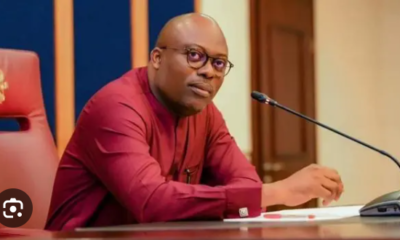
 News10 months ago
News10 months agoHURIWA Declares Governor Fubara’s Emergence as Divine, Urges Support for Rivers State’s Progress
-
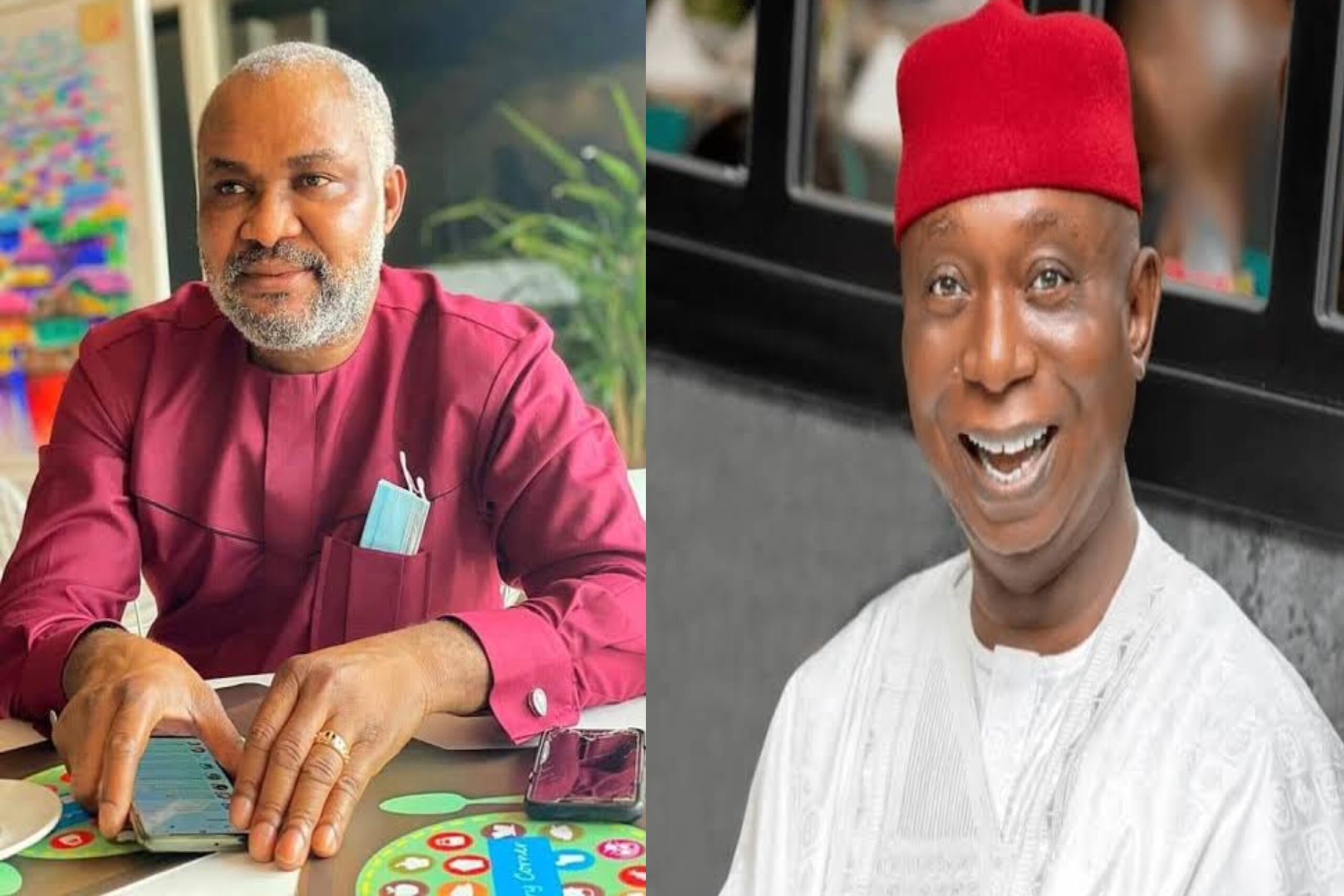
 News10 months ago
News10 months agoAnioma State as panacea to South-East marginalization – By Emmanuel Onwubiko
-

 Opinion8 months ago
Opinion8 months agoNIGERIAN WOMAN IN DIASPORA, CULTURAL SHOCKS – By Stacey Ukaobasi Onwuegbuchulam
-
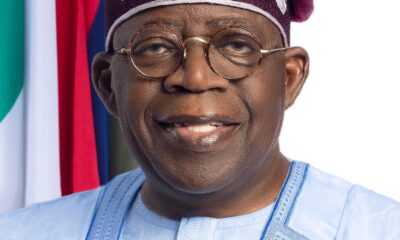
 News11 months ago
News11 months agoHURIWA Blames Serial Stampedes on Weaponized Poverty, Warns of Nigeria’s Rapid Decline
-
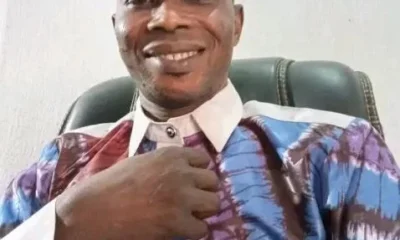
 News10 months ago
News10 months agoJealous Husband Stabs Nigerian Bishop To Death Over Suspicion Of Sleeping With Estranged Wife
-
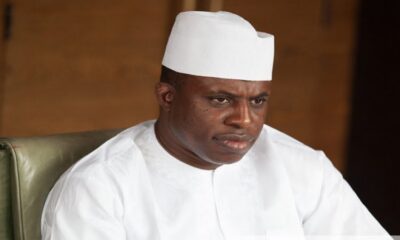
 News10 months ago
News10 months agoTinubu sympathizes with ex-speaker Bankole on the death of his mother
-
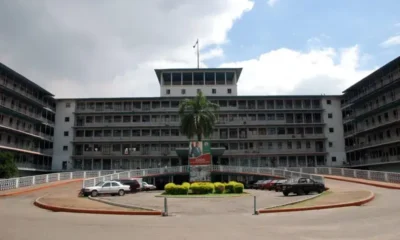
 Health8 months ago
Health8 months agoA complete list of 154 healthcare facilities across Nigeria that provide free emergency obstetric care and VVF (Vesico-Vaginal Fistula) surgeries.


